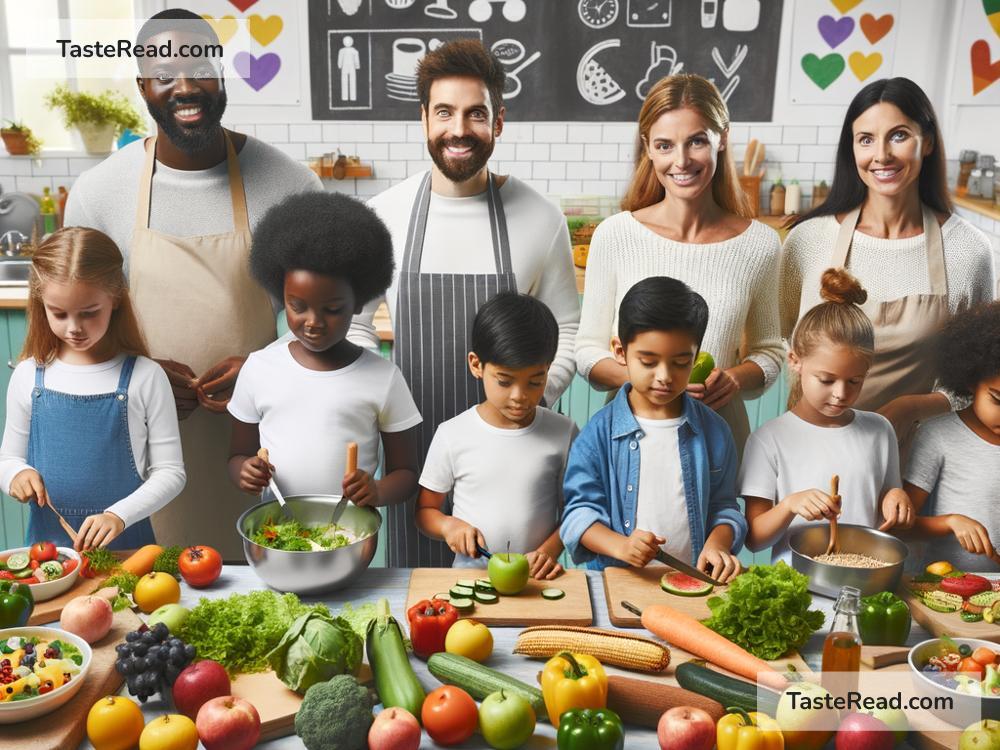The Impact of Food Education on Nutrition
Food is essential for our survival, but choosing the right foods can significantly affect our health. Many people don’t fully understand what makes a diet healthy. This is where food education plays a big role. Food education helps people learn about nutrition, the importance of balanced meals, and how to make better choices for their health. In this article, we’ll explore how food education can improve nutrition for individuals, families, and communities.
What is Food Education?
Food education is the process of teaching people about food, nutrition, and how to prepare meals. It includes learning about where food comes from, how to read food labels, the benefits of eating fruits and vegetables, and how different foods affect our bodies. Food education helps people see the connection between what they eat and how they feel, both physically and mentally.
Schools, health organizations, community programs, and social media all play a part in food education. Teachers, nutritionists, chefs, and doctors often share their knowledge to inspire healthy habits. By teaching people the facts about food and nutrition, food education empowers them to make informed choices.
Why Is Food Education Important?
Many people today face health problems like obesity, diabetes, and heart disease due to poor eating habits. Fast food, sugary drinks, and overly processed snacks have become a large part of our diets. While these foods may be convenient, they lack the nutrients our bodies need to stay healthy. Without understanding these effects, people often eat what is easiest or cheapest, even if it harms their health.
Food education helps combat these problems by encouraging people to choose whole, nutrient-rich foods like fruits, vegetables, lean proteins, and whole grains. It also teaches the importance of moderation—people don’t have to give up their favorite treats, but they should enjoy them in small amounts.
For children, food education can be especially impactful. When kids learn about healthy eating at a young age, they are more likely to carry those habits into adulthood. Schools that offer lessons about nutrition and cooking are giving children tools that will benefit them for the rest of their lives.
The Impact on Individuals
When people have a better understanding of food and nutrition, their health often improves. For example, someone who learns how to cook healthy meals instead of relying on fast food might experience more energy and fewer health problems. They may also feel better emotionally, as the vitamins and minerals in healthy foods can positively impact mood and brain function.
Food education also helps people make smart choices even when they’re busy. If you understand how to plan meals, pack snacks, or pick healthier options at restaurants, it becomes easier to stick to good habits. This knowledge can save you money as well—cooking at home is often cheaper than eating out, and buying seasonal produce can cut grocery costs.
The Impact on Families
Food education doesn’t just benefit individuals but also families. When one family member learns about nutrition, they can share their knowledge with the rest of the household. Parents who understand the importance of balanced meals can teach their children, creating a culture of healthy eating at home.
Families that cook together often eat better. Studies show that home-cooked meals tend to contain fewer calories, less sugar, and more nutrients compared to takeout or processed foods. Cooking together also strengthens family bonds and teaches kids valuable life skills.
Children who grow up in households with healthy eating habits are less likely to develop obesity or other health issues. They are also more likely to try new foods, which leads to a more varied diet full of nutrients.
The Impact on Communities
On a larger scale, food education can improve entire communities. When enough people know how to make healthy food choices, the demand for nutritious options grows. This encourages grocery stores, restaurants, and food manufacturers to offer better products.
Community programs that focus on nutrition, such as cooking classes, gardening clubs, or farmers’ markets, can make healthy foods more accessible. For example, a school that teaches students about planting vegetables might inspire families to start their own gardens. Similarly, nutrition workshops at local organizations can help adults learn to prepare affordable, healthy meals.
Food education can also help reduce healthcare costs. Healthier communities experience fewer chronic illnesses like diabetes and heart disease, which means less money spent on treatment. By focusing on prevention through education, communities can save resources and improve the quality of life for everyone.
Barriers to Food Education
Even though food education offers many benefits, some barriers make it difficult to reach everyone. One major obstacle is lack of access to healthy foods. In “food deserts,” where fresh produce and nutritious options are limited, it’s harder to put food education into practice. Similarly, people may struggle with time, money, or motivation to learn new habits.
Another challenge is misinformation. With so much conflicting advice about food online, it can be overwhelming to know what’s true. Food education needs to focus on clear, science-backed information so people can trust what they learn.
Conclusion
The impact of food education on nutrition is powerful, as it touches many parts of our lives. It helps individuals improve their health, families share positive habits, and communities grow stronger. By teaching people how to make thoughtful food choices, food education empowers them to take control of their well-being.
While there are challenges to spreading food education, tackling them is worth the effort. When people understand nutrition and learn to eat healthier, they can live happier, longer lives. Food education is not just about eating right—it’s about creating a healthier future for everyone.


